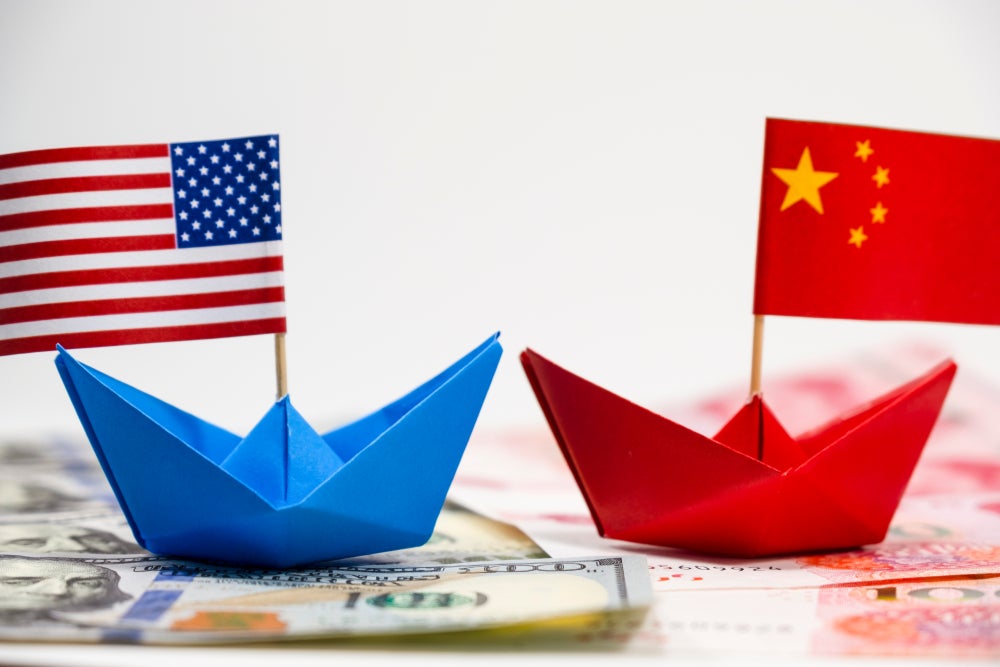In a testimony delivered to the US International Trade Commission (USITC) on Monday (11 March), NCTO president and CEO Kim Glas was keen to draw attention to the rise in imports from Bangladesh, Cambodia, India, Indonesia and Pakistan as major suppliers to the US.
She suggested their ascent has coincided with the "economic depression" plaguing the US' domestic textile industry.
“This is no coincidence, and it is imperative to understand and document what makes them so competitive, as well as how this growth has impacted domestic production and the larger Western Hemisphere production chain, to inform the necessary US policy response and recalibration,” she added.
Glas’ statement is part of the USITC’s current research on the export competitiveness of the five Asia apparel sourcing countries, titled: 'Apparel: Export Competitiveness of Certain Foreign Suppliers to the United States.' The findings will be submitted to the US Trade Representative’s Office.
NCTO's suggestions to reduce damage to US's domestic textile, apparel sector
Glas shared the following measures with USITC which she claimed could counteract the so-called effects of the import surge and safeguard the US textile and apparel industry:
- Reject proposals to expand Generalized System of Preferences (GSP) product coverage to textiles or apparel,
- Close the De Minimis tariff loophole,
- Dramatically ramp up customs and trade remedy activities,
- Address predatory trade behaviours with effective penalties to deter unfair practices.
The Bangladesh Garment Manufacturers and Exporters Association (BGMEA), Textile, Apparel, Footwear and Travel Goods Association in Cambodia (TAFTAC), Pakistan Readymade Garments Manufacturers & Exporters Association (PRGMEA), The Clothing Manufacturers Association Of India (CMAI) and Association of Textile Trader (ASPETEX) indonesia had not responded to Just Style's request for comment at the time of going to press.
Pakistan defends benefits of Asia apparel sourcing
However, the Pakistan Ambassador to the US Masood Khan pointed out during the hearing that Pakistan's apparel sector is undergoing profound transformation and is positioning itself for robust export growth.
He noted: “Because of massive disruption in supply chains in last two years, Pakistan like other leading exporters of apparel witnessed a declining trend. However, right now, we are in the recovery mode of rapid growth.”
He pointed out that the US is the largest export destination for Pakistan with textiles and apparel constituting around 85% of Pakistan’s total exports to the US.
He continued: “Pakistan has a 3.3% share of the US market in the textiles and apparel segment, however, all the exports of apparel products are subject to applicable MFN (most-favoured-nation) tariffs of up to 38.3% as Pakistan does not enjoy preferential access to the US market."
Khan shared his country’s strength in the textile and apparel sector was anchored to:
- The local supply of major input materials
- Availability of a skilled and competitive workforce
- Industrial integration
- Vibrant and dynamic entrepreneurship
- A commitment to meeting quality and Environment, Social and Governance (ESG) standards.
He also highlighted Pakistan's liberal investment regime and its attractiveness to foreign and local investors, which has facilitated significant investments in the textiles and apparel manufacturing chain. He believes the sector can therefore ramp up the scale of its apparel manufacturing further.
Impact on US' domestic textile, apparel industry
Glas highlighted the critical importance of the domestic textile industry to the US economy, highlighting its role in national security and public health.
However, she expressed concerns over deteriorating domestic market conditions, so-called "unchecked foreign predatory trade practices", and diminished customs enforcement activities.
She continued: “Unethical cost reduction practices and predatory trade activities plague global textile and apparel production and markets.”
Khan argued: “Individual companies in Pakistan are adopting advanced traceability technologies to consciously champion supply chain transparency in alignment with global requirements.”
Through the adoption of advanced traceability technologies and initiatives such as the Net Zero Pakistan initiative, he said the country's leading apparel companies are actively championing sustainability and aiming to achieve the Net Zero goal by 2050.
Khan noted many prominent US retailers and enterprises, most of them Fortune 500, were already sourcing their products from Pakistan.
“Pakistani apparel exporters look forward to reinforcing the strong historical trade relations between the two countries,” concluded the ambassador.









